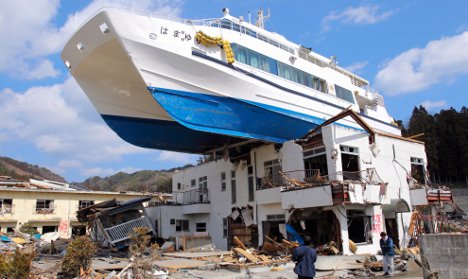Munich Re said in a statement it booked bottom-line net profit of €710 billion ($935 million) in 2011, a drop of 71 percent from a year earlier.
“The year was marked by a series of severe earthquakes and many weather-related catastrophes. In addition, there was the worsening of the sovereign debt crisis in the eurozone,” the statement said.
“We have never experienced a year like 2011 before – extreme burdens from natural catastrophes combined with the financial crisis, which flared up again after the slight recovery in 2009 and 2010,” said chief financial officer Jörg Schneider.
“Given the huge strains these placed on results, it is a notable achievement that we still posted a profit of €710 million,” Schneider said.
While gross premiums for the year rose by 8.9 percent to €49.6 billion, investment earnings dropped 21.8 percent to €6.8 billion, not least as a result of €1.2 billion in writedowns on the group’s holdings of Greek government securities.
Munich Re said that losses from natural catastrophes amounted to €4.5 billion for the entire year, with the deadly earthquake and ensuing tsunami in Fukushima, Japan, costing it €1.5 billion at a pre-tax level.
The group also said it expected insurance claims resulting from the earthquakes in New Zealand to amount to around €1.5 billion. And flooding in Thailand was projected to lead to claim costs of around €500 million.
Taking the fourth quarter alone, Munich Re’s net profit rose by 33.1 percent to €630 million, beating analysts’ expectations. In the wake of the results, Munich Re said it planned to pay shareholders an unchanged dividend of €6.25 per share.
Investors welcomed the news and Munich Re shares were showing gains of around 0.64 percent on the Frankfurt stock exchange on Thursday, outperforming the general market which was up 0.05 percent.
AFP/mry



 Please whitelist us to continue reading.
Please whitelist us to continue reading.
Member comments